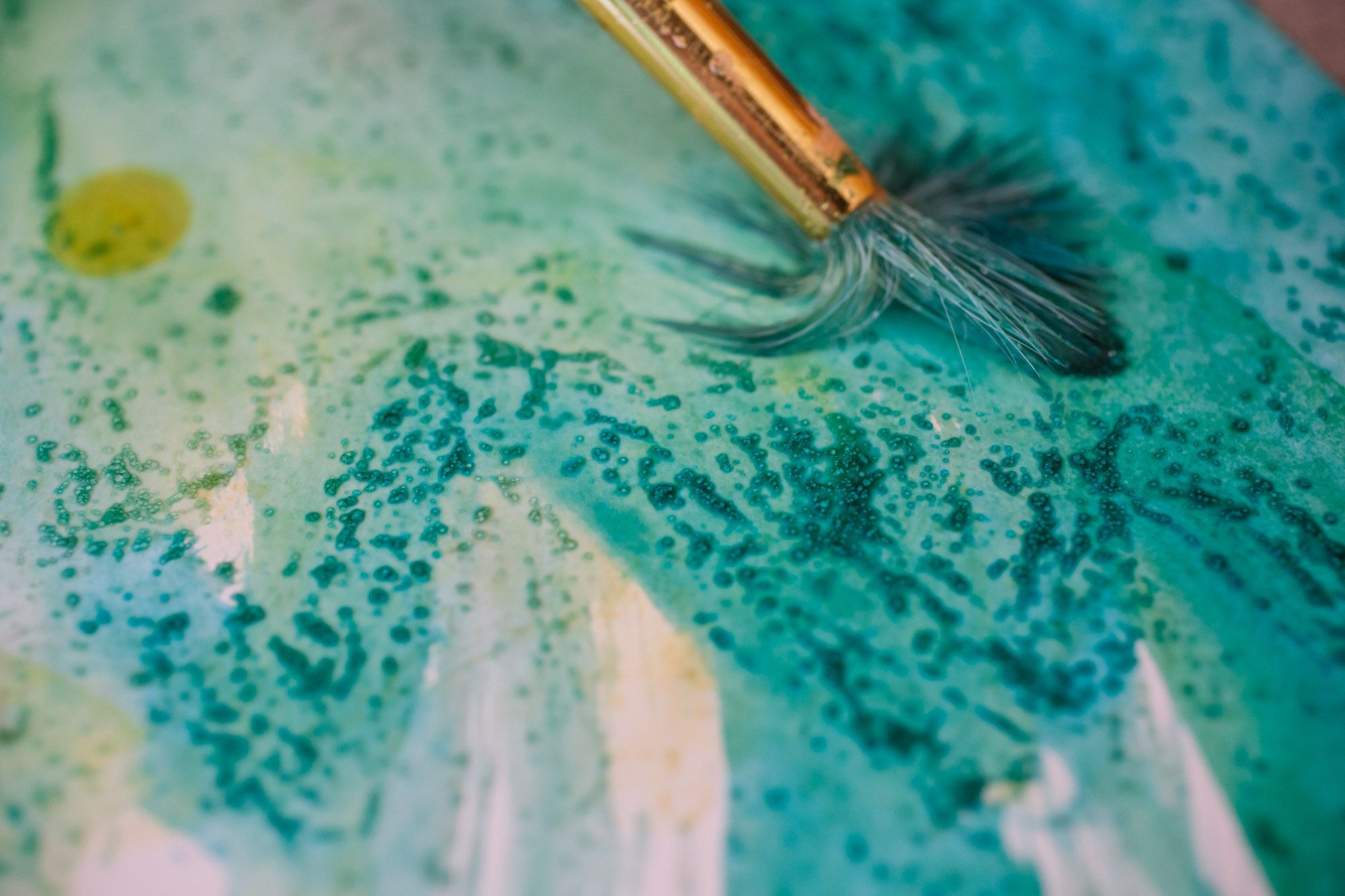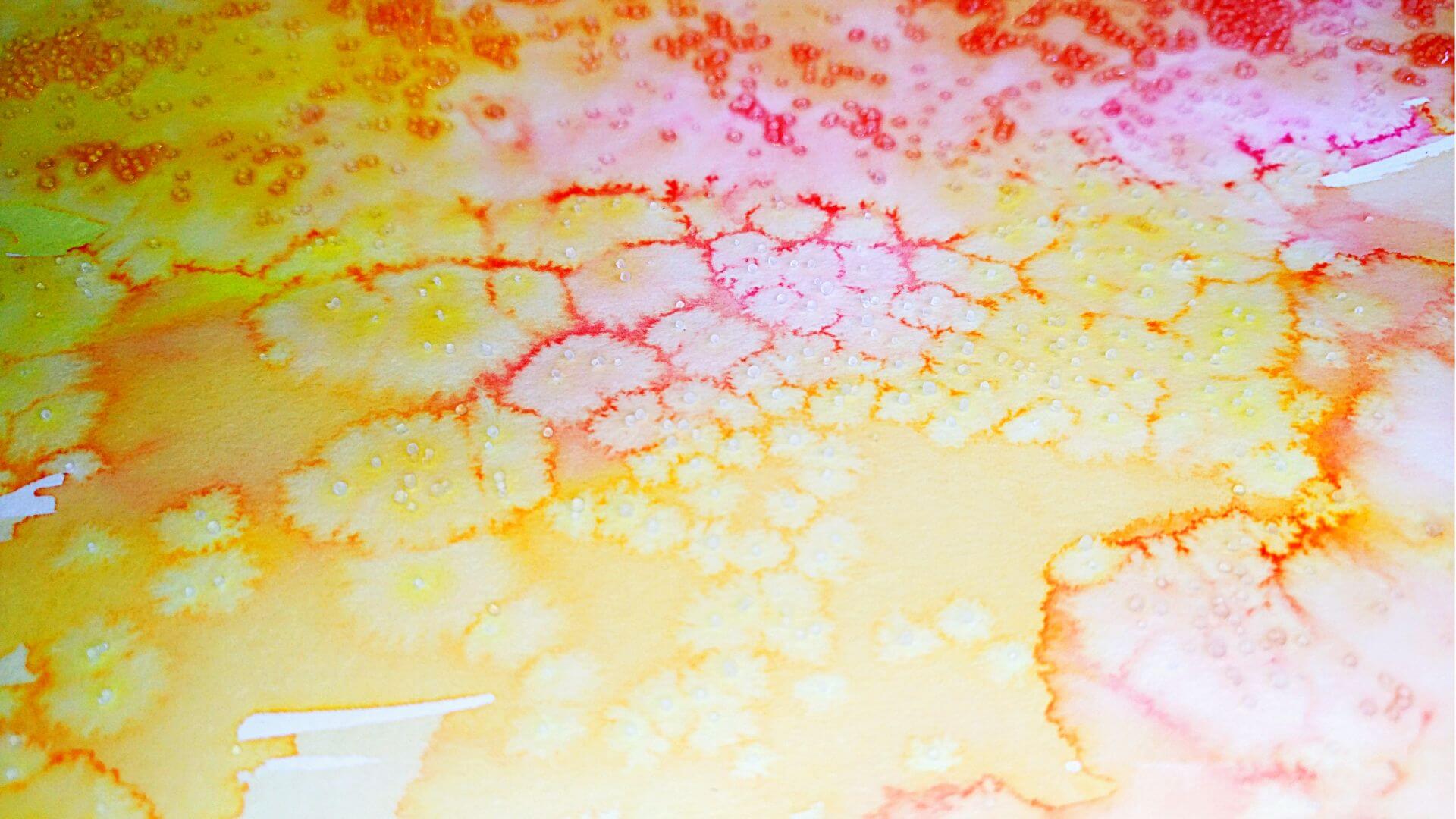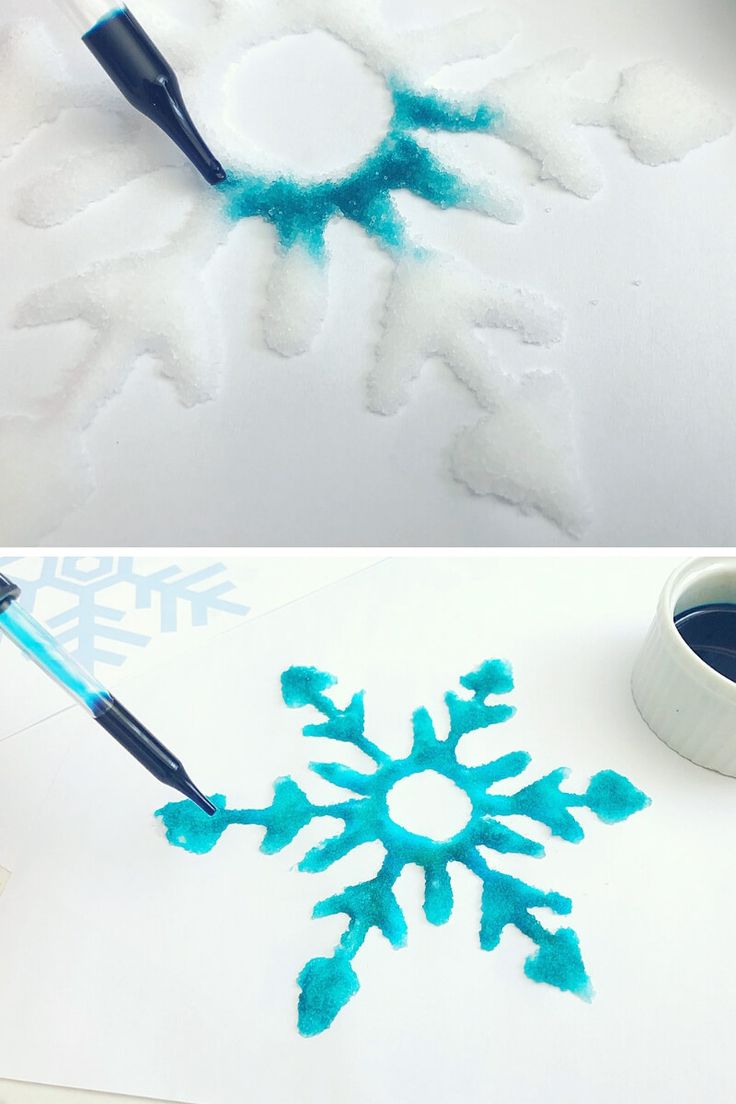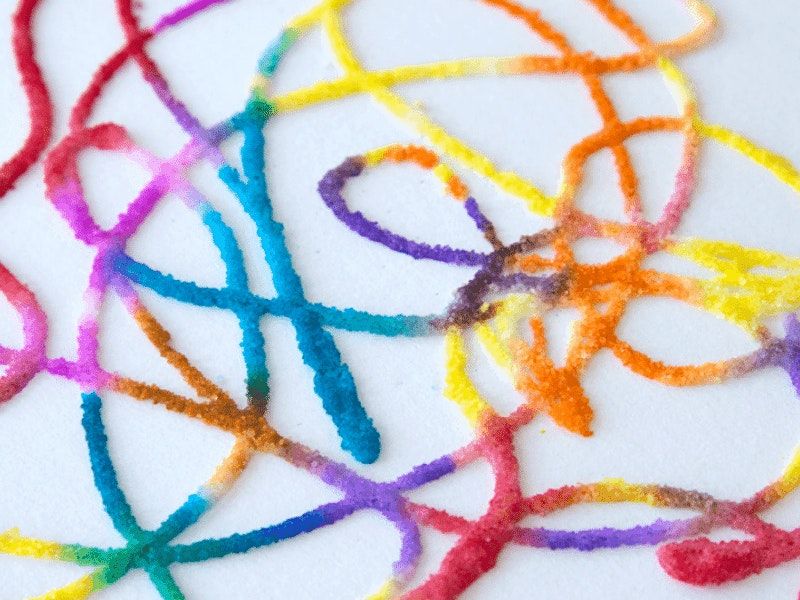
Salt Technique Applied to Textile Printing. Did you know that salt is used to achieve beautiful effects on your prints? Well, that’s right, We’ll share everything you need to know about salt paint. Discover how to paint with salt step by step.
Paint with Salt Step by Step
Indeed, we can use the physicochemical properties of the salt to achieve specific printing effects on different fabrics. In any case, to take advantage of these properties, you must know both how to use salt to achieve the desired results and the paints that you can use for it. It is what I will share with you in this article.
Salt Painting Method

The truth is that we can use it in different ways in the technique of salt painting—however, the most common areas are an anti-diffuser, a blocker, or an absorbent.
As Anti-Diffuser
If you want to use the salt as an anti diffuser for the paint, you must first prepare the anti-fuser. For this, you will need:
Ingredients
- 250 grams of salt
- 1 liter of boiling water
Procedure
- Dissolve the salt in the water, mix and let it cool, about an hour.
- Filter with a strainer.
- Apply to fabric and allow to dry before painting.
Tips
- You can test the effect with different salt concentrations, considering that the higher the attention, the more anti-diffusion.
- The effect also varies if drying is accelerated or delayed. In the first case, a dispersion of more delicate crystals is produced, while in the opposite case, larger salt particles are formed.
As a Blocker
On the other hand, if you will use salt as a blocker, you should proceed as follows.
- Put a line of salt and paint only one side of it.
- Previously delimit the area on the opposite side to the one you will paint with a line of gutta or wax. The paint will cross the salt line, pushing the grains and depositing them at the most distant point, where it reaches in its expansion.
As Absorbent
Finally, to use salt as an absorbent, follow this step by step:
- Sprinkle salt on a damp, painted surface. By absorbing moisture, the salt attracts the paint and forms a zone of concentration.
- You can use any salt, whether standard, fine or coarse salt, or sea salt. Try different sizes of crystals for other effects.
Note that:
- The more diluted the paint is, the less the effect will be.
- If the fabric is excessively wet, it will dilute the effect.
- The ambient humidity also affects the result, and it is preferable to do it in a dry environment.
How to Paint with Salt?

In any case, to paint with salt, in addition to salt, you need paint. Below you will find how to paint with some of the most used.
Watercolor or Tempera
The beauty of painting with watercolor and salt is that the results are unpredictable, and as you try varying the different factors that come into play, you can control them to fit what you are looking for. We begin, moistening the paper. Next, paint with the watercolors, it does not have to be figurative, and it is even preferable that it is not. Sprinkle the salt on the still-damp paper and let it work until it dries. Observe how the grains of salt attract the drops of watercolor while still wet. Once the watercolor is dry, shake the paper to remove the salt. You can achieve the same with tempera, and the condition is that it is pretty diluted.
With Glue and Colored Chalk or Salt

Another way to paint with salt is to grate chalks of different colors and mix them with salt. Next, mix the glue with water and paint the entire surface of the paper while you spread the colored salt on it, delimiting the areas you prefer. Let it dry well and see the results. Successive tests will allow you to control them.






